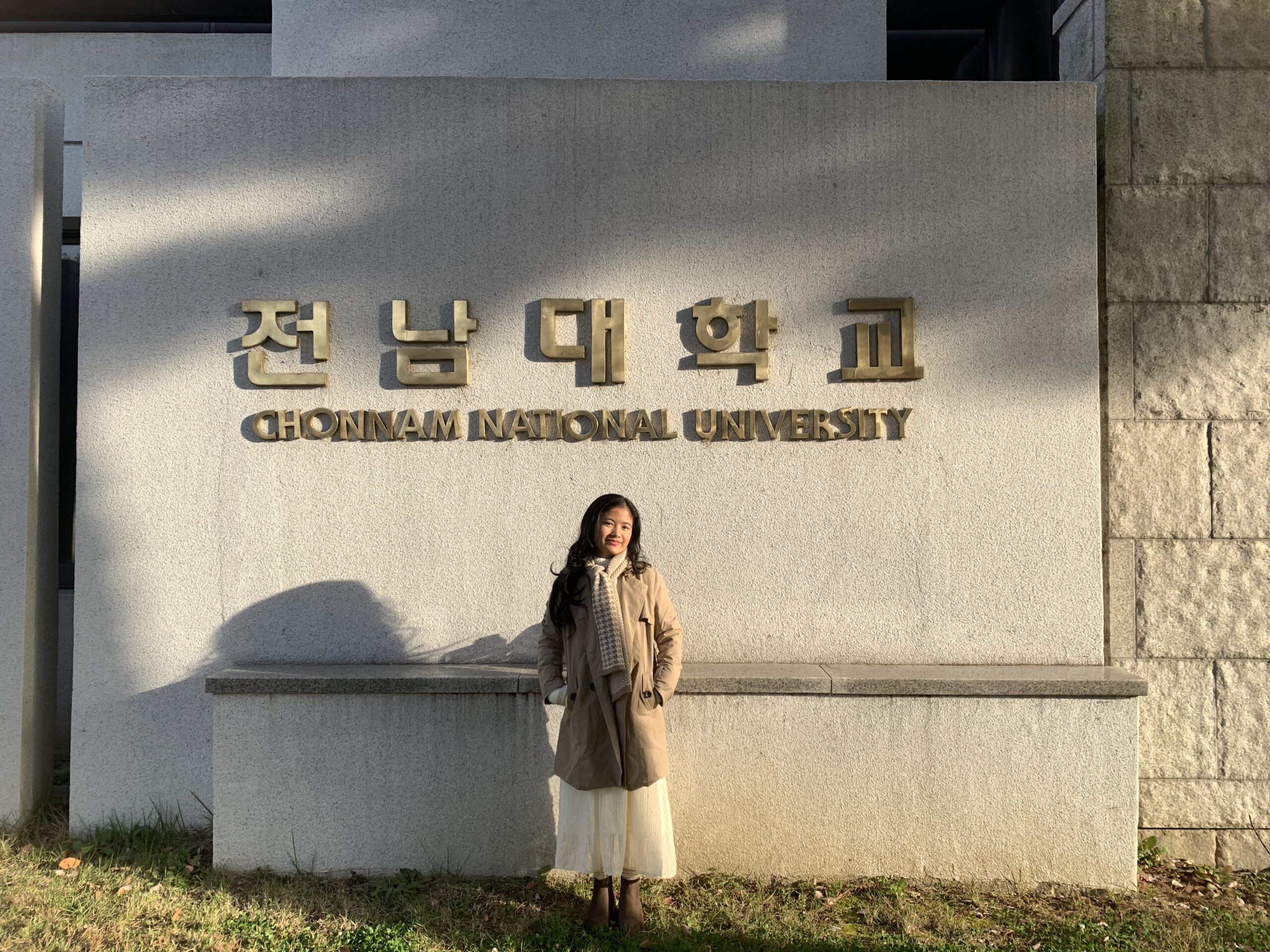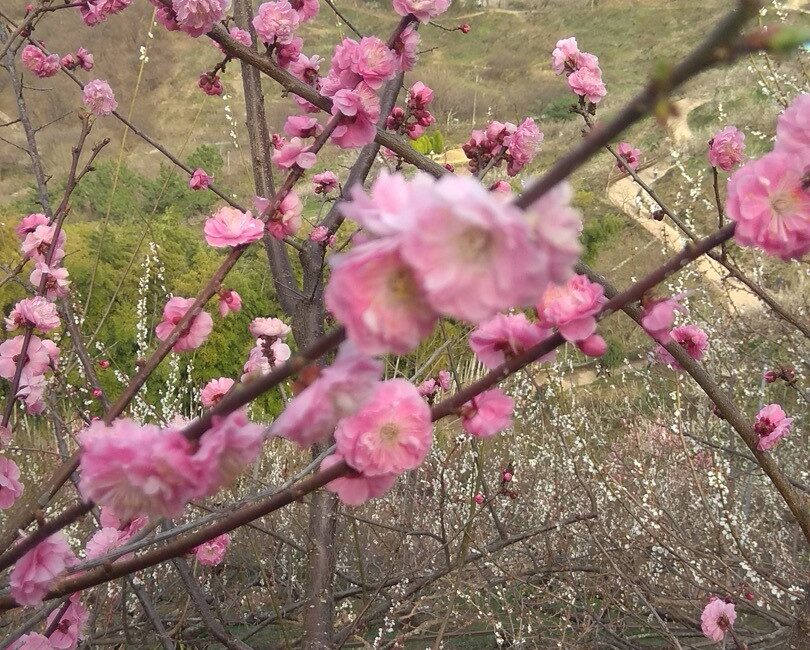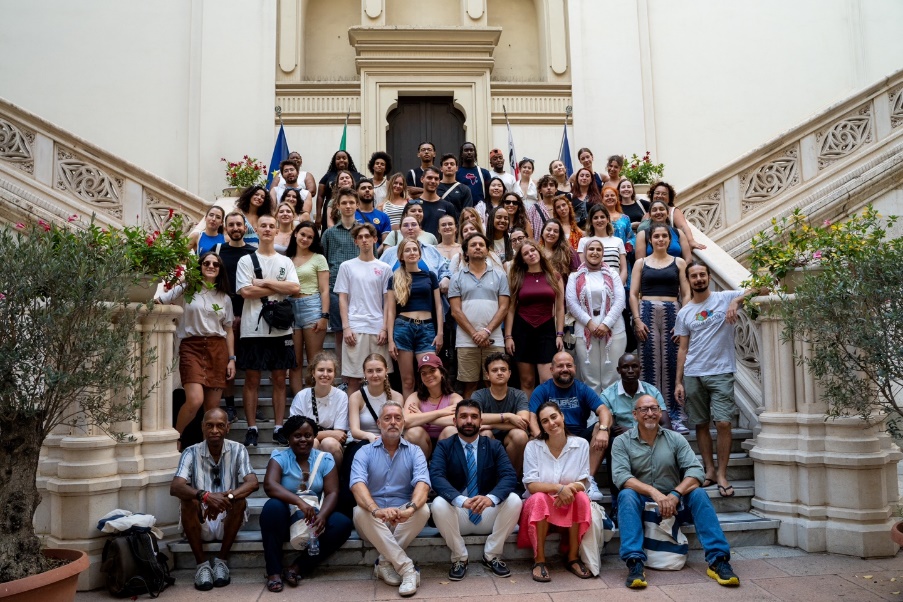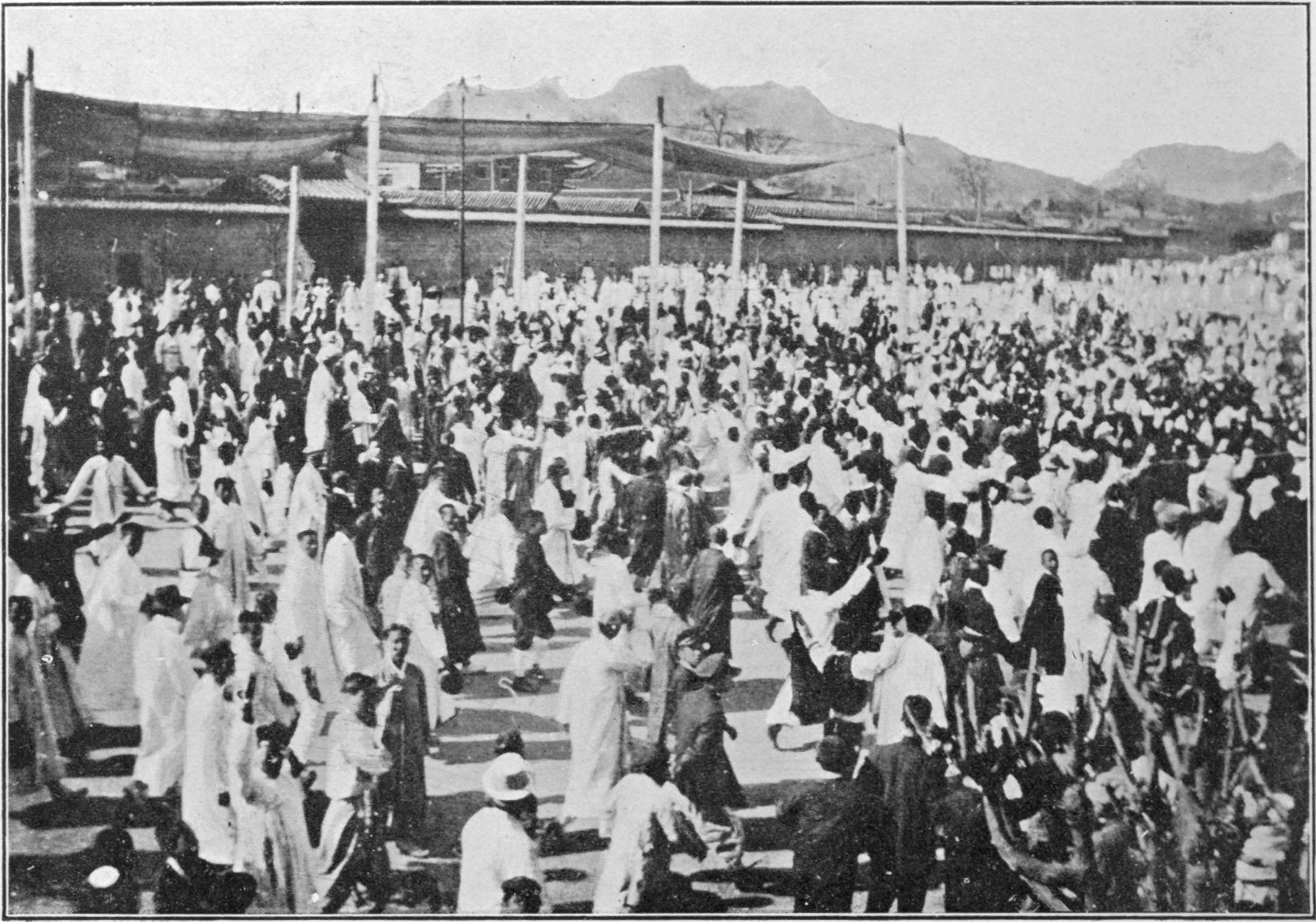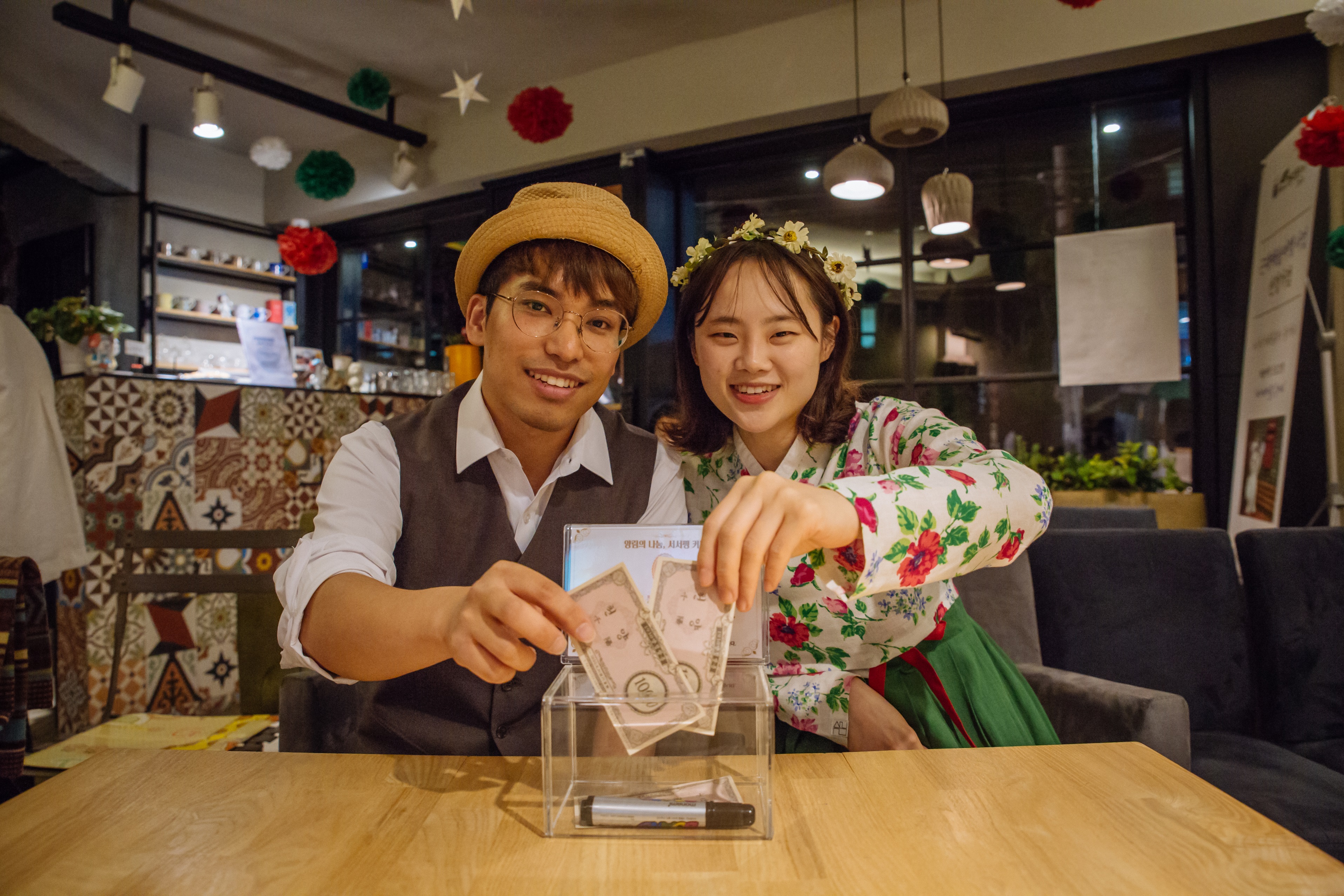1930 Salon de Yangnim & Film Station
Written by Anastasia Traynin
Photos courtesy of 1930 Salon de Yangnim and It da
Interpretation by Heo Seok-yeong
Cultural events and activities in Korea are not limited to the weekends. In an effort to encourage hard-working Koreans to enjoy more of their well-earned time off, in January 2014, the Ministry of Culture, Sports, and Tourism designated the last Wednesday of each month as Culture Day, with museums, galleries, private exhibits, movie theaters, and other places opening their doors with free admission or at discounted rates. Cultural events and activities in Korea are not limited to the weekends. In an effort to encourage hard-working Koreans to enjoy more of their well-earned time off, in January 2014, the Ministry of Culture, Sports, and Tourism designated the last Wednesday of each month as Culture Day, with museums, galleries, private exhibits, movie theaters, and other places opening their doors with free admission or at discounted rates.

In Gwangju, the Culture Day concept has given birth to a diversity of ideas for engaging city dwellers on that elusive Wednesday night. This month, we look at two ongoing events: 1930 Salon de Yangnim, a project of the Seoul- and Gwangju-based creative group Juice Come Funny, and Film Station, organized at downtown’s historical Gwangju Cinema by the local media social enterprise “It da.”

1930 Salon de Yangnim
Tucked away down a narrow alleyway in Gwangju’s old missionary neighborhood of Yangnim-dong, is Modern Girl Table, a cozy, old house divided into two unique parts: a vintage European-style café and a colorful hanbok shop. This is the headquarters of the 1930 Salon de Yangnim, a Culture Day project launched on the last Wednesday of March 2016.
On this hot, sunny afternoon, my interpreter and I welcome the cool, relaxed atmosphere in the café and the chance to chat with Lee Na-young, Juice Come Funny Gwangju branch ten-year veteran and deputy head, and also with her coworker of three years, Kim Kkot-bi. Having twice attended the Salon, I have seen the monthly nighttime transformation, when peaceful Yangnim-dong lights up with live performances by local musicians, and visitors wander the maze-like streets, stopping in at a café for a concert and a cup. I am curious about the significance of the year 1930. Lee and Kim explain that this decade, in the second part of the Japanese colonial period, was the start of Gwangju’s modernization. The French word “salon” evokes a mood of poets, musicians, artists, and other creative types displaying and discussing their work over tea. It also matches the ambience that they seek to create. The word “nostalgia” comes to mind, but Kim says that this applies more to the 7080 Chungjang Recollection Festival that takes place in the fall. The Salon de Yangnim, on the other hand, is based on imagination.

Lee explains: “There are not many people from the 1930s era still alive today. Between the older and younger generations, people can imagine and create new ideas, and collaborate.”
Before 2014, the events in Yangnim-dong were limited to certain fields such as classical music. After the start of Culture Day, the local government started focusing heavily on reshaping the neighborhood as a tourist space, with unique projects such as the artistic Penguin Village, shops related to missionary history, and a market street where citizens could directly participate with their own programs.

Kim highlights one café in particular, Suh Suh-pyeong, the Korean name of American Southern Presbyterian Church missionary Elisabeth J. Shepping, who worked in various cities including Gwangju until her death in 1934 and burial in Yangnim’s Honam Missionary Cemetery. As Suh is known for her selfless and equality-based service compared with other missionaries, her namesake café has taken on the practice of “suspended coffee,” said to have originated 100 years ago in working-class Naples, Italy. A customer can pay for two cups of coffee with the intention of someone else being able to enjoy the second cup of coffee free.
The Salon de Yangnim maintains its overarching monthly theme, with special features such as a traditional play that resumed in July and an upcoming September hanbok fashion show. Local international-Korean band Fantastic Mistake is just one of the many artists that perform in this event’s designated locations. If you are looking for a lively weekday evening cultural activity, mark your calendars for the last Wednesday of the month – 5:00-9:30 p.m. – and head across the Gwangju Stream to Yangnim.
Film Station

On May 31, I had the pleasure of attending a free screening of the 2014 English movie “Pride,” imported into Korea last year with the domestic title “London Pride,” at one of Gwangju’s treasures, Gwangju Cinema, established in 1935. Best of all, there was a post-movie talk by Seoul-based film director Kim Jo Kwang Soo, the first to register a same-sex marriage with his partner. His talk was intermingled with a performance by local acoustic male-female duo, Kkot-nim-I Band (꽃님이 밴드). This Culture Day event called Film Station was made possible by Kim Ji-a and her team at Gwangsan-gu’s It da, named after the Korean verb meaning “connect.”

Kim visited us at the Gwangju International Center to chat about the brand-new Film Station project, launched on the last Wednesday of April this year. She started by explaining further about the concept behind Culture Day.
“Many Korean workers have no weekend and they do overtime, so the Korean government started using so-called culture vouchers for the weekdays,” Kim explained. “On that Wednesday, with the voucher, they can leave work early and get discounts [at culture-related establishments].”

The Culture Ministry is working to specialize each region and, along with the coinciding Yangnim Salon, It da is representing the Gwangju area. As Juice Come Funny works to revitalize the old neighborhood of Yangnim-dong, It da’s Film Station hopes to attract more people to Gwangju Cinema, a long-standing but not well-attended city landmark. Located in the tailor district on the former main street of the city near the Gwangju Stream and its first bridge, the classic movie theater retains its character of showing independent and arthouse Korean and foreign movies.
As a Gwangju native, Kim was embarrassed to visit the Gwangju Cinema as a university student for the first time. She developed a fondness for old buildings and felt sad that central downtown’s relocation to the Asia Culture Center and Chungjang-ro areas meant a loss of awareness about the movie theater among the general population.
“Older people who used to come to the cinema don’t know that it is still there and young people don’t know the place at all, so we can create interest with new programs.”

In short, Film Station grew out of a need for the regular use of the Gwangju Cinema as a vital cultural space. It da works with the theater’s board members to create a monthly theme, with May having focused on human rights and June and July making use of its intimate screening room in the middle of the back garden, hidden from street view. As the event spans from 5 to 10 p.m. on the last Wednesday of the month, the free movie screenings are preceded by two hours of lively local music performances and art exhibits in Gwangju Cinema’s lobby.
Kim characterizes It da’s vision as the desire for a fun workplace with activities that make the public happy, and eventually grow beyond Gwangju to other countries. If a night of music and film strikes your fancy on a weekday night, take a stroll down the street behind the towering NC Wave building, and find yourself at Film Station.
With these two great events in our city, we hope you enjoy Culture Day, the last Wednesday evening of each month in Gwangju!



